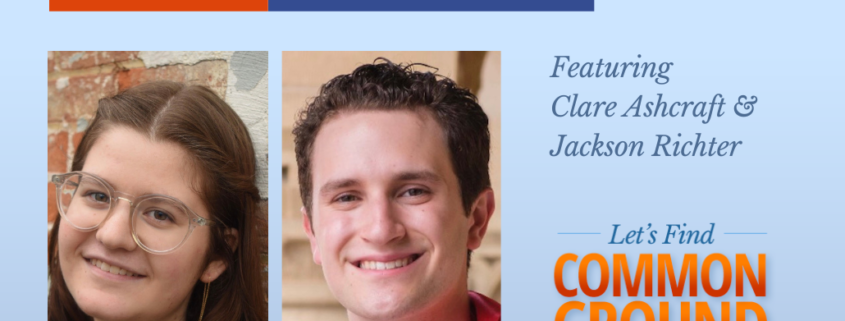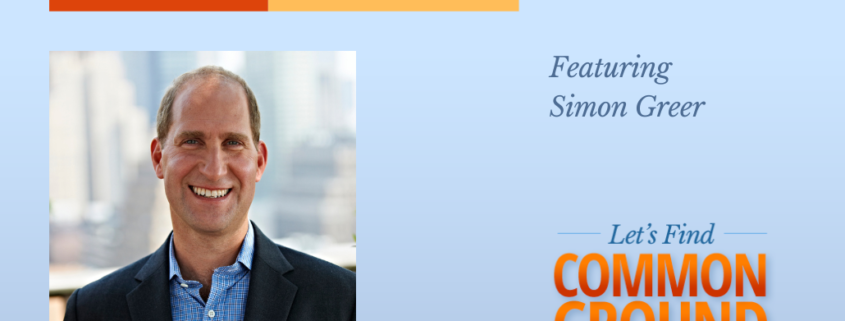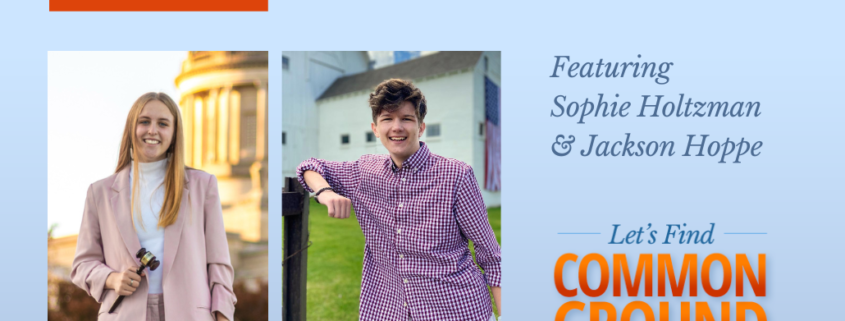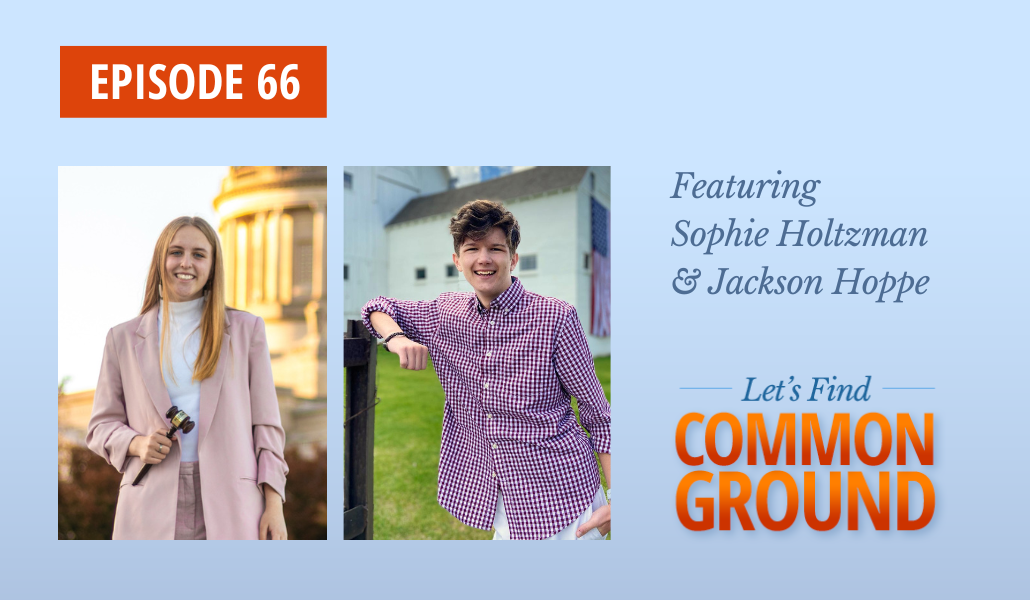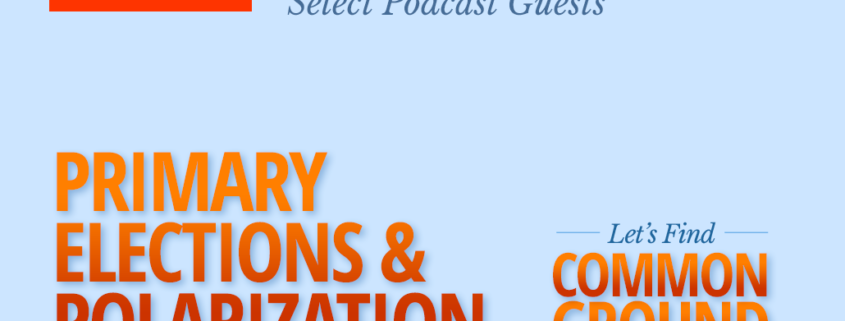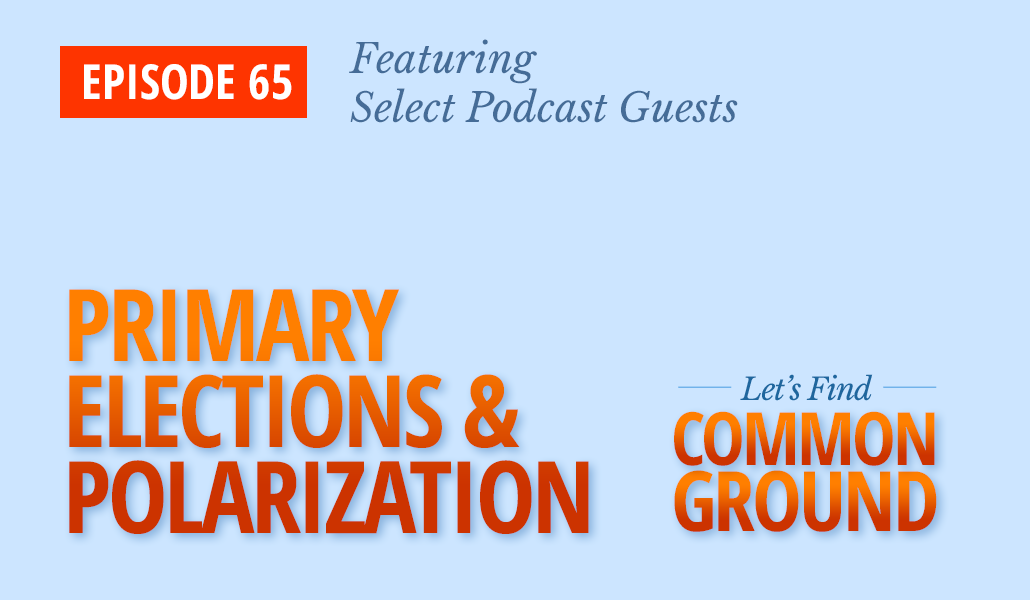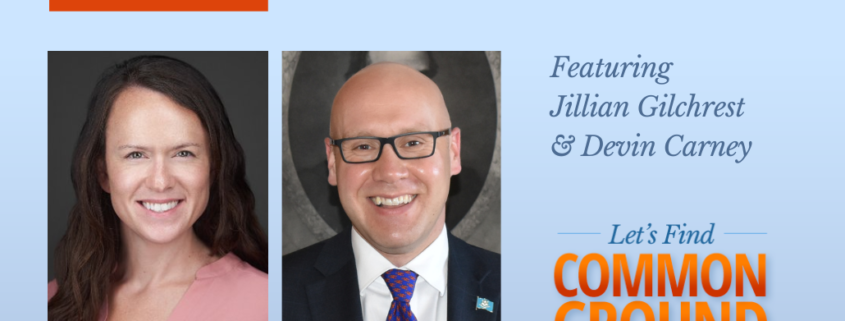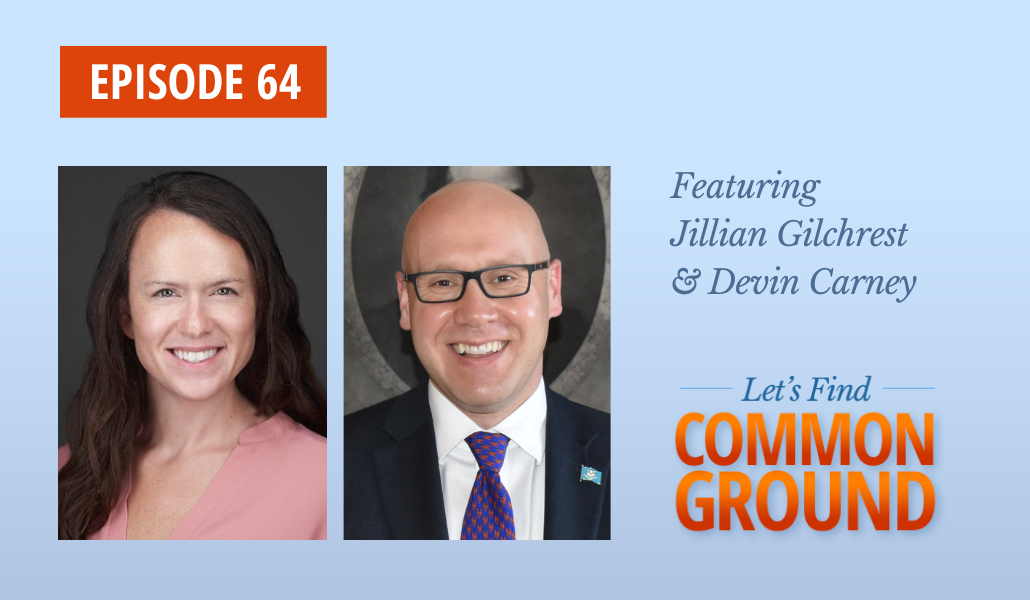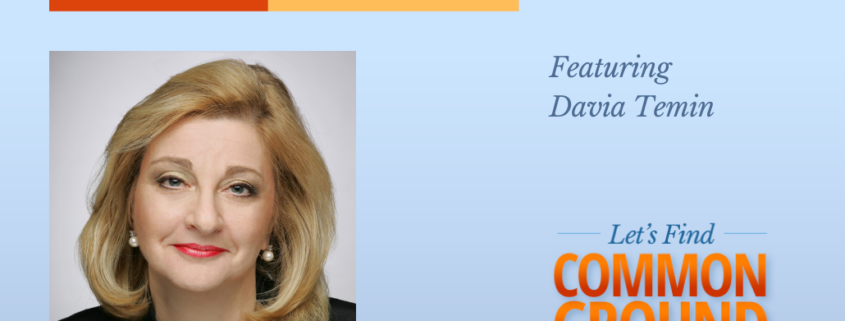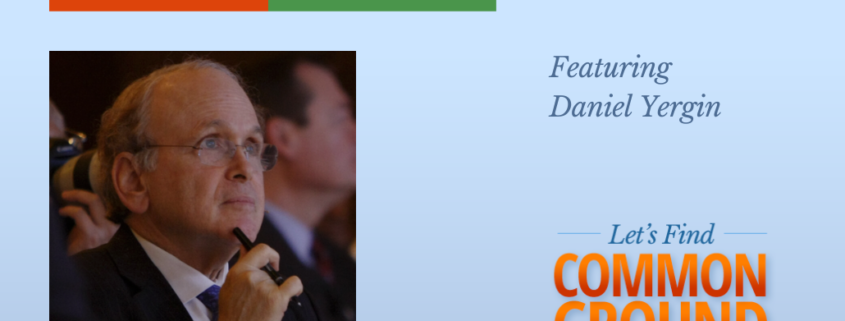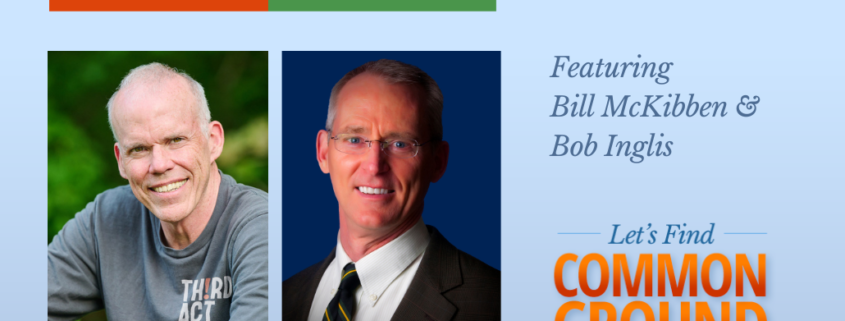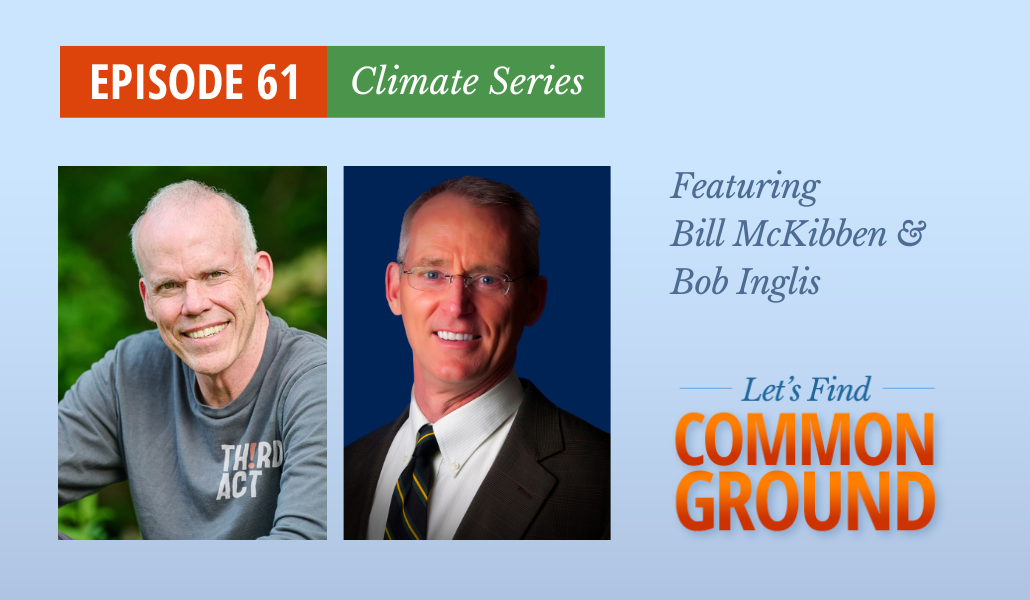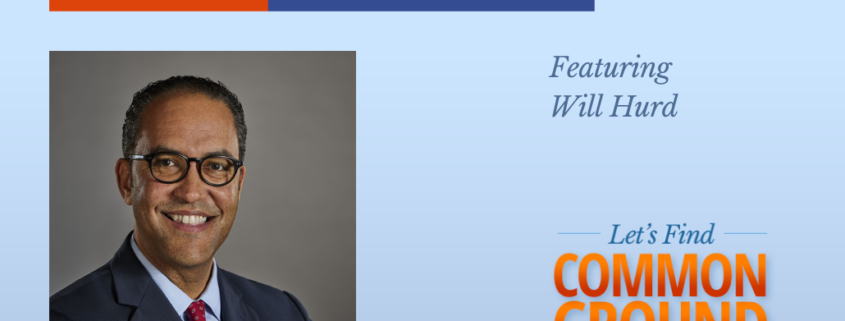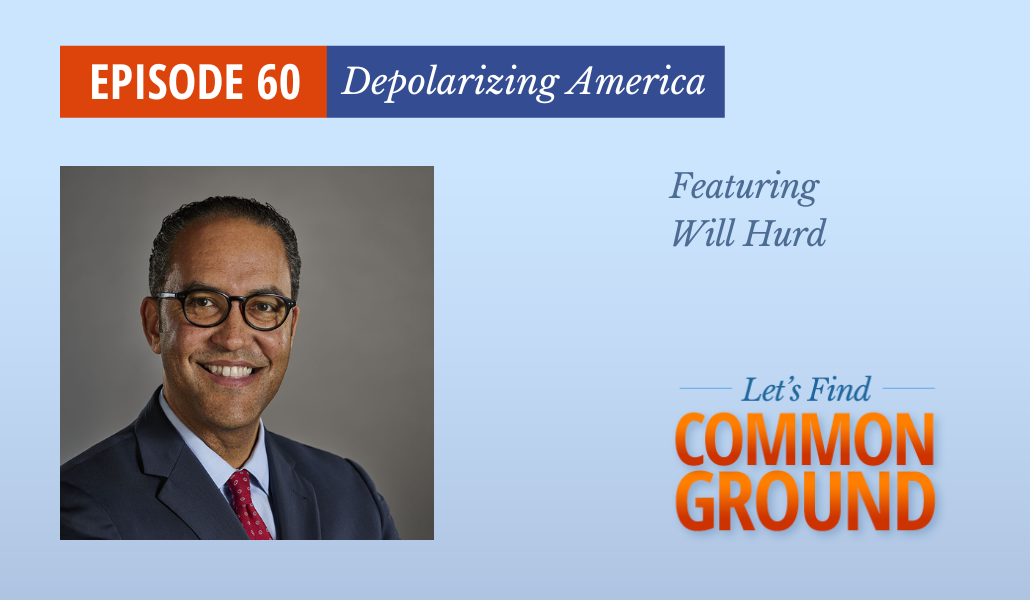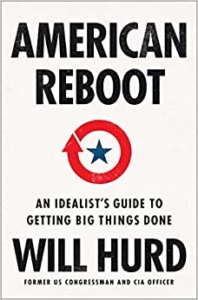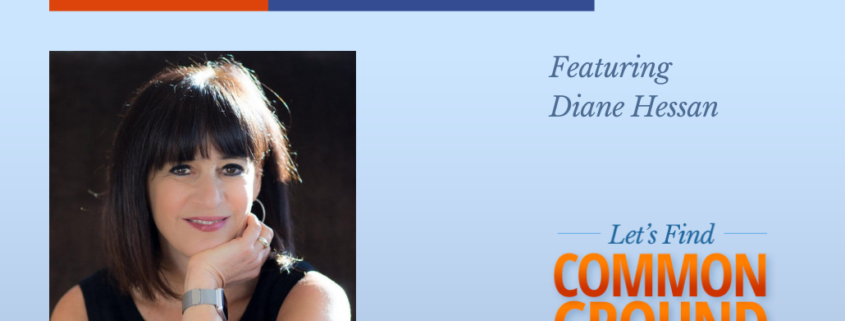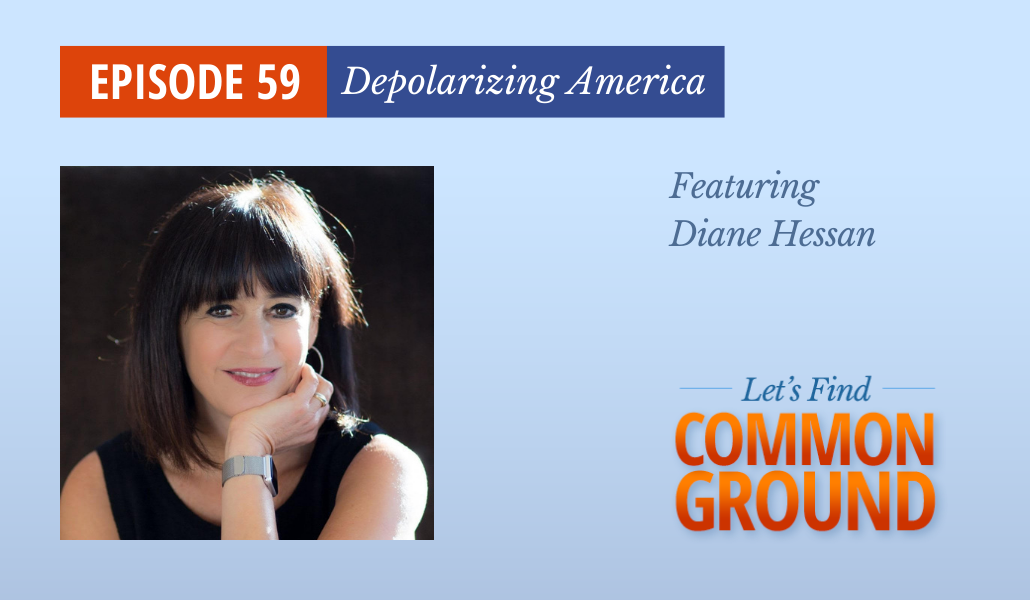Bridging Divides on College Campuses
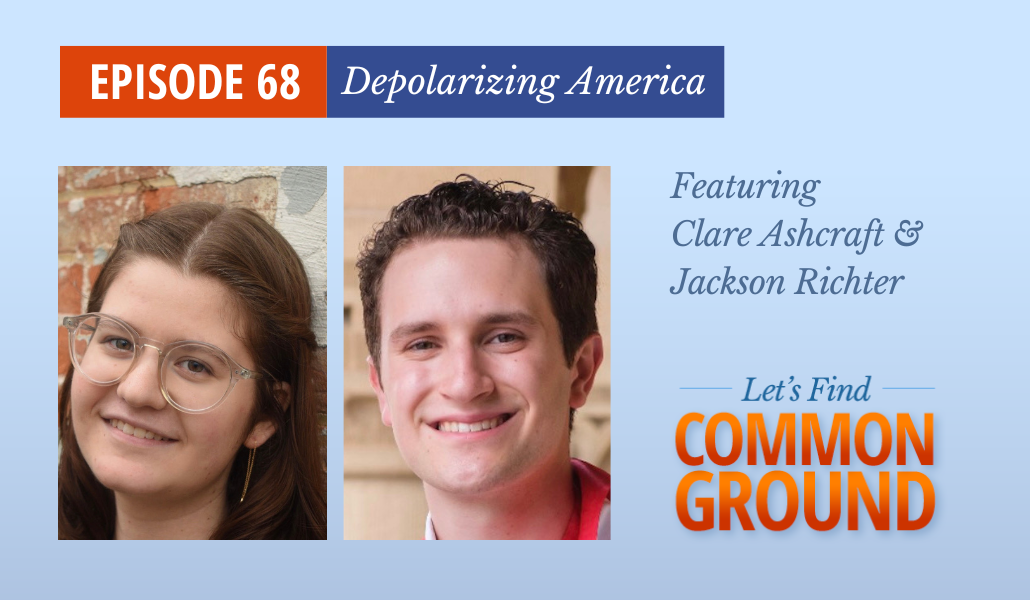
Subscribe to the Podcast
Can young people find the solution to overcoming the hostility caused by political polarization?
Rigid polarization and political division are among the biggest challenges facing our country. Young people are often taught that tribalism is better than unity and that conversations across political and cultural divides are impossible.
College students Clare Ashcraft, who comes from a conservative background, and Jackson Richter, who calls himself a committed liberal, are active members of BridgeUSA, a national movement of students who are working to emphasize the importance of empathy, understanding and ideological diversity.
In this podcast episode of Let’s Find Common Ground, we hear about their personal experiences of cancel culture, the impact of social media on Generation Z students, and why many young people actually feel that free speech can harm them. We also learn about efforts to equip students with skills to find solutions across divides and build bridges with others of different backgrounds and points of view.
Read the Episode Transcript
Ep 68 – Bridging Divides on College Campuses
Clare Ashcraft
Clare Ashcraft is an English and philosophy student at Capital University in Columbus, Ohio. At Capital, she leads a chapter of BridgeUSA, is involved with student government, Sigma Tau Delta, and ReCap Literary Magazine. She also builds sets in the Cabaret theater. Outside of class, she works as a bridging & bias assistant for AllSides. She enjoys listening to podcasts and cooking in her free time.
Jackson Richter
Jackson Richter is completing his master’s degree in public policy at Stanford University, where he recently graduated with a bachelor’s degree in public policy with a minor in data science. He is the President of Stanford’s BridgeUSA chapter, known on campus as the Stanford Political Union. He is passionate about health care, socially minded entrepreneurship, and equity. Jackson is also a proud New Yorker and an avid supporter of the city’s sports teams.
Want to hear more? Check out our podcast page to see all the discussions!

